Cancer is a major cause of premature death. Yet cancer is treatable. Cancer is preventable. Good nutrition and avoidance of overweight are two of the most important strategies for keeping this killer from striking.
“Cancer is one of the most curable chronic diseases in this country [U.S.] today.” –Vincent Devita Jr. MD, Former Director of the National Cancer Institute
Why is cancer so important?
Do you know someone who has cancer or who has passed away from cancer? Odds are that you do. In the U.S., nearly 1500 people die each day from cancer. In the last 24 hours, 3400 people got word of a new cancer diagnosis. In 1900, 1 of every 33 deaths was due to cancer. In 2007, over 1 of every 4 deaths was due to cancer. North America’s incidence of cancer is staggering.
Evidence suggests that about 33% of cancer deaths are related to high body fat, physical inactivity and poor nutrition (lots of fat, sugar, processed foods, animal foods and not many plants). When we factor in tobacco, nearly 60% of cancer deaths could be prevented.
What you should know about cancer
Cancer is an abnormal and rapidly growing tissue. When unrestrained, it can take over standard bodily processes.
A carcinogen is a substance that promotes the development of cancerous cells. Carcinogens can come from foods we eat, air we breathe, lotions we rub on, and even from within the body.
While many carcinogens are defused before any harm can emerge, some of them will assault genetic material within a cell and alter it. Not good.
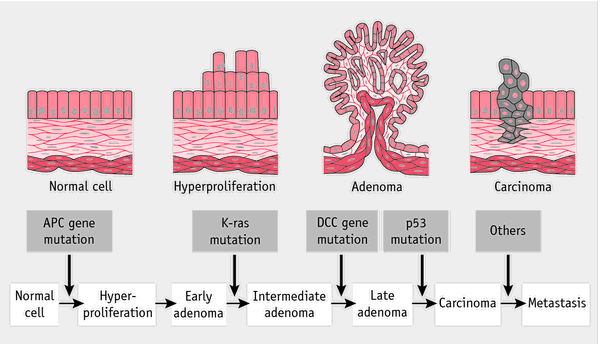
BMI & cancer
Body fatness is highly associated with cancer risk. Some of the strongest evidence that exists today links cancer and fatness. Fatness is linked with up to 33% of colon, breast, kidney and digestive tract cancers.
Because adipose (fat) tissue is hormonally active, excess body fat changes the hormonal environment of the body. Body fat secretes particular chemical signals that alter normal cell functioning. When we lose body fat and maintain a lean body, certain hormones drop and this may be why risk is reduced.
Those who have already been diagnosed with cancer tend to have better survival outcomes when they are at a healthy weight.
And don’t forget to check your waist circumference. A bigger waist means a bigger chance of cancer. For women, a waist measurement of 31.5 inches or more puts them at high risk. For men, a waist measurement of 37 inches or more puts them at high risk.
“After tobacco, overweight/obesity appears to be the most important avoidable cause of cancer in populations with Western patterns of cancer incidence. Among non-smoking individuals in these populations, avoidance of overweight is the most important strategy for cancer prevention.” –Dr. Timothy J. Key, Cancer Epidemiology Unit, University of Oxford, United Kingdom
The link between diet and cancer
The food we eat impacts cancer both directly and indirectly.
We consume foods with nutrients, and they directly impact the mechanisms by which cancer cells grow and spread. Indirectly, food can help control cancer by managing the surrounding biochemical conditions that encourage or discourage the progression of disease.
The major areas of our lifestyle and diet that influence cancer promotion include:
- Oxidation
- Inflammation
- Immune-suppression
- Blood sugar control
- Stress
Items that aggravate each specific area are listed below. Oxidative offenders that can promote cancer:
- Tobacco use
- Alcohol use
- Sedentary lifestyle
- Excessive body fat
- Overly strenuous exercise
- Psychological stress
- Radiation
- High levels of storage iron
- High doses of single antioxidant supplements
Inflammatory offenders that can promote cancer:
- Smoking
- Alcohol use
- Pollution
- Sleep deficit
- Extreme levels of exercise
- Overconsumption of omega-6 fats, saturated fats and trans fats
- Overconsumption of refined/high glycemic carbs
- Cooking with high flame, high heat (grilling and deep frying)
- Excess body fat
Immune-suppressors that can promote cancer:
- Smoking
- Alcohol use
- Emotional distress
- Unhealthy weight loss
- Sedentary lifestyle
- Poor eating habits
- Unhealthy dietary fat intake
- Dairy foods
- Iron rich foods (with heme iron)
Blood sugar offenders that can promote cancer:
- Overweight/obesity
- Infrequent, large meals
- Poor sleep patterns
- Psychological stress
- Inactivity
- Refined carbohydrates and high glycemic foods
- A pro-inflammatory diet (high omega-6 fat intake, refined carbs)
Stress offenders that can promote cancer:
- Caffeine
- Alcohol
- Overworking
- Sleep disruption
- Inactivity
- Poorly timed food/drink consumption (e.g., no breakfast, large meals before bed, etc)
- Extreme exercise
- Low carb, high fat diets
- Low carb, high protein diets
- High ratio of omega-6’s to omega-3’s
- Overeating
Meat & cancer
There is an enormous international disparity in cancer prevalence, and when we consider this, along with findings from migrant studies, it appears that environmental factors (like diet and exercise) are associated with cancer risk.
Meat intake is an important area of research. The consumption of meat varies 3-fold across our planet, with very high intakes in developed countries and lower intakes (to almost none at all) in less developed countries. The meat-cancer connection has been reported in over 100 epidemiological studies from numerous countries with assorted food habits.
A survey of more than 494,000 people by the National Institutes of Health found that men who ate more than 5 ounces of red meat each day and women who ate more than 3 ounces had a 51% greater risk of esophageal cancer, 61% of liver cancer and 24% of colorectal cancer than those who ate less than an ounce of red meat daily.
We don’t know if it’s a specific type of fat or protein causing the cancer, and/or whether meat intake actually signifies other things (such as low vegetable intake, or high intake of processed foods). Three food habits that are linked to colon cancer include:
- Eating red meat more than once a week
- Eating grilled meat more than twice a week
- Eating processed meats
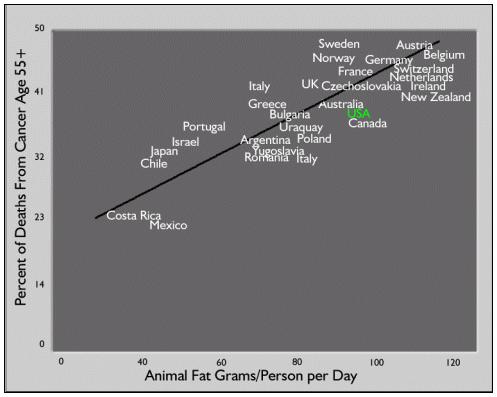
A study of more than 500,000 Americans has provided strong evidence that men and women who consumed the most red and processed meat were likely to die sooner, particularly from heart disease and cancer, when compared to people who consumed less of these foods. Consuming processed meats—including hot dogs, pepperoni, bacon, and deli meats—is a key risk factor for cancer. Processed meats increase one’s risk of colorectal cancer by an average of 21 percent for every 50 grams (~2 oz) of processed meat consumed daily.
Because research on processed meats shows cancer risk starts to increase with any portion, some experts recommend avoiding them altogether.
Plant foods & cancer
Nearly 150 studies performed since the 1980s have suggested that people who consistently consume large amounts of fruits and vegetables are half as likely to develop cancer as people who have a diet lacking these plant foods. And while diverse types of cancer seem to respond differently to dietary factors, a higher plant food intake is the common denominator that seems to help.
To my knowledge, a scientific article highlighting an association between a plant-based diet and more cancer doesn’t exist.
However, not all plant-based foods help prevent cancer.
When we cook carbohydrate-dense foods like potatoes and grains at high temperatures (above 248 degrees F), we can form acrylamide, which is a carcinogen. Foods with the highest amounts include potato chips and French fries.
Preparing foods via steaming, boiling, sprouting or simmering may be a better option. Oh, and avoiding processed carb foods (chips, crackers, cereals, etc.).
Dairy & cancer
Nutrition can alter the expression of genes involved in the development of cancer. Protein such as casein, found in cows-milk, has been linked to different forms of cancer.
For more about how milk/dairy can influence our health, see All About Milk.
Organic food & cancer
Consuming food that’s been treated with synthetic pesticides, herbicides and fungicides has been linked to certain cancers. Buying organic and local when possible is your best option.
However, the cancer prevention benefit of conventional fruits and vegetables is better than eating none at all.
Beverages & cancer
Artificial sweeteners may boost cancer risk – we’ve discussed diet soda and health outcomes in All About Diet Soda.
Excessive alcohol consumption (more than 1 drink per day for women and 2 drinks per day for men) seems to raise one’s risk for cancers of the breast, mouth, pharynx, stomach, liver, colon and esophagus. Mix in a pack of smokes and risk goes through the roof. For more on alcohol and health, see All About Alcohol.
Tea may have a protective effect against cancer. More on tea
Supplements & cancer
Although substances in food, such as beta-carotene and vitamin E, appear to reduce cancer risk when eaten in their original format (i.e. in fruits and vegetables), they appear to increase cancer risk when consumed as isolated supplements. Even basic multivitamin supplements have been related to developing certain forms of cancer.
It might be your best bet to supplement only with nutrients that aren’t readily attained from food (such as vitamin D) rather than adding random pills.
Summary and recommendations
Can we prevent cancer with nutrition? Maybe. We now know that the food we eat can mean the difference between conquering cancer and having it spiral out of control.
The good news is that there are several factors we can modify in our daily life that can help reduce our risk. Indeed, incorporating the following items can decrease our odds of developing cancer by nearly 60%!
- Maintain a lean body (as lean as possible while still at a healthy weight)
- Limit dietary fat intake, and choose unsaturated fats and omega-3 rich foods (flax, hemp, walnuts, chia seeds, olives, avocado, algae, fish, etc.)
- Limit sugar and refined carbohydrates as much as possible (including sugary drinks)
- Limit animal foods, especially dairy and red meat (due to the animal protein, fat and iron content)
- Exercise consistently (about 5 hours per week), avoid over- or under-exercising
- Eat foods mostly of plant origin, including beans, vegetables, fruits, and whole grains
- Limit/exclude alcohol
- Don’t smoke
- Don’t include unnecessary vitamin/mineral supplements
- Control stress (e.g., meditation, yoga, tai chi, breathing, social connections, etc.)
- Drink water and tea
Want to fight cancer starting at your next meal? The following foods have been shown to be strong cancer preventers
- At least 1 cup of beans each day (e.g., pinto, chickpea, lima, peas, black, soy, etc.)
- At least 1 cup of green leafy vegetables each day (e.g., collards, chard, kale, spinach, beet greens, salad greens, watercress, etc.)
- At least ½ cup of crunchy and cruciferous vegetables each day (e.g., broccoli, celery, carrots, cabbage, Brussels sprouts, asparagus, peppers, radishes, etc.)
- At least 1 cup of unrefined starchy foods each day (e.g., yams, squash, millet, corn, quinoa, amaranth, whole wheat, barley, oats, etc.)
- At least 1 cup of seasonal fruit each day (e.g., berries, citrus, apples, pears, plums, peaches, kiwi, mango, etc.)
- At least ¼ cup of nuts and seeds each day (e.g., almonds, walnuts, flax seeds, hemp seeds, cashews, etc.)
- At least 2 servings of nutrition wildcards each day (e.g., sea veggies, algae, herbs, spices, herbal teas, etc.)
“Fight cancer with your knife and fork by eating plenty of vegetables, fruits and whole grains, and eating less red meat and fatty foods.” –Dr. Wendy Demark-Wahnefried, Professor, Duke University Medical School
Extra credit
Approximately 25-35% of cancer can be attributed to diet.
30% of cancer can be attributed to smoking.
Between 1996 and 2005 the incidence of cancer among Canadian 15 to 29 year olds rose 0.8% per year in males and 1.4% per year in females.
Dying from cancer is more likely among those eating the most red meat — about 22% higher for men and 20% for women.
Very hot (temperature) drinks and foods increase risk of oral cavity, pharynx, and esophageal cancer.
Vitamin B3 may reduce acrylamide formation.
We could prevent the deaths of one million men and perhaps half a million women just by eating less red and processed meats, according to estimates by Dr. Barry Popkin (University of North Carolina).
References
Click here to view the information sources referenced in this article.
Learn more
To learn more about making important improvements to your nutrition and exercise program, check out the following 5-day video courses.
They’re probably better than 90% of the seminars we’ve ever attended on the subjects of exercise and nutrition (and probably better than a few we’ve given ourselves, too).
The best part? They’re totally free.
To check out the free courses, just click one of the links below.

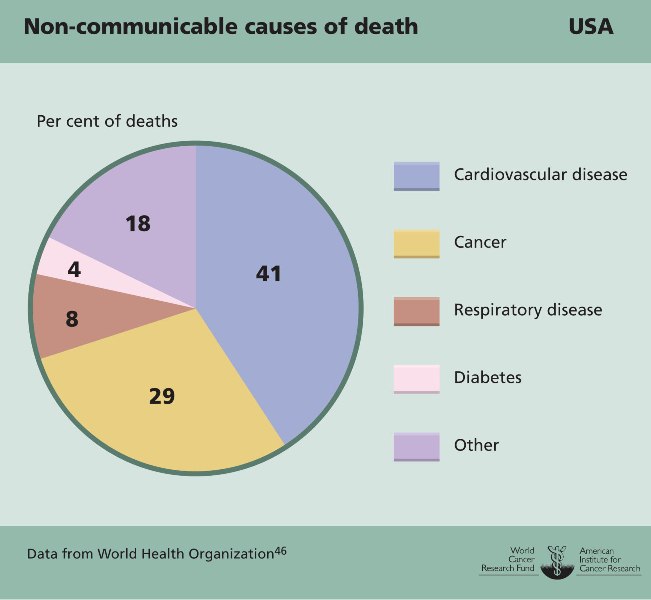
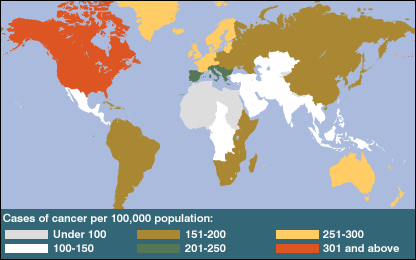
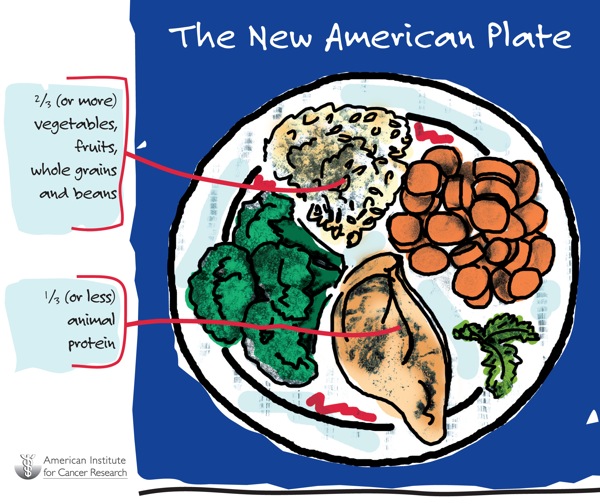
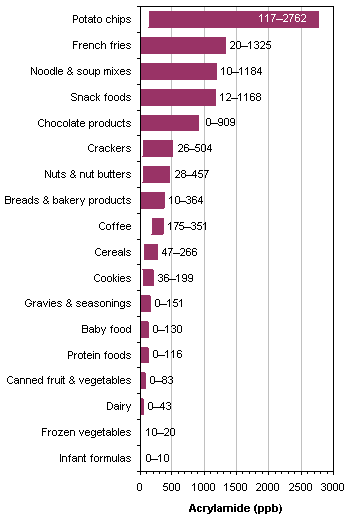
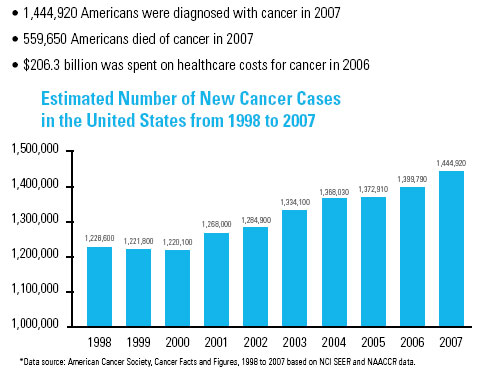



Share